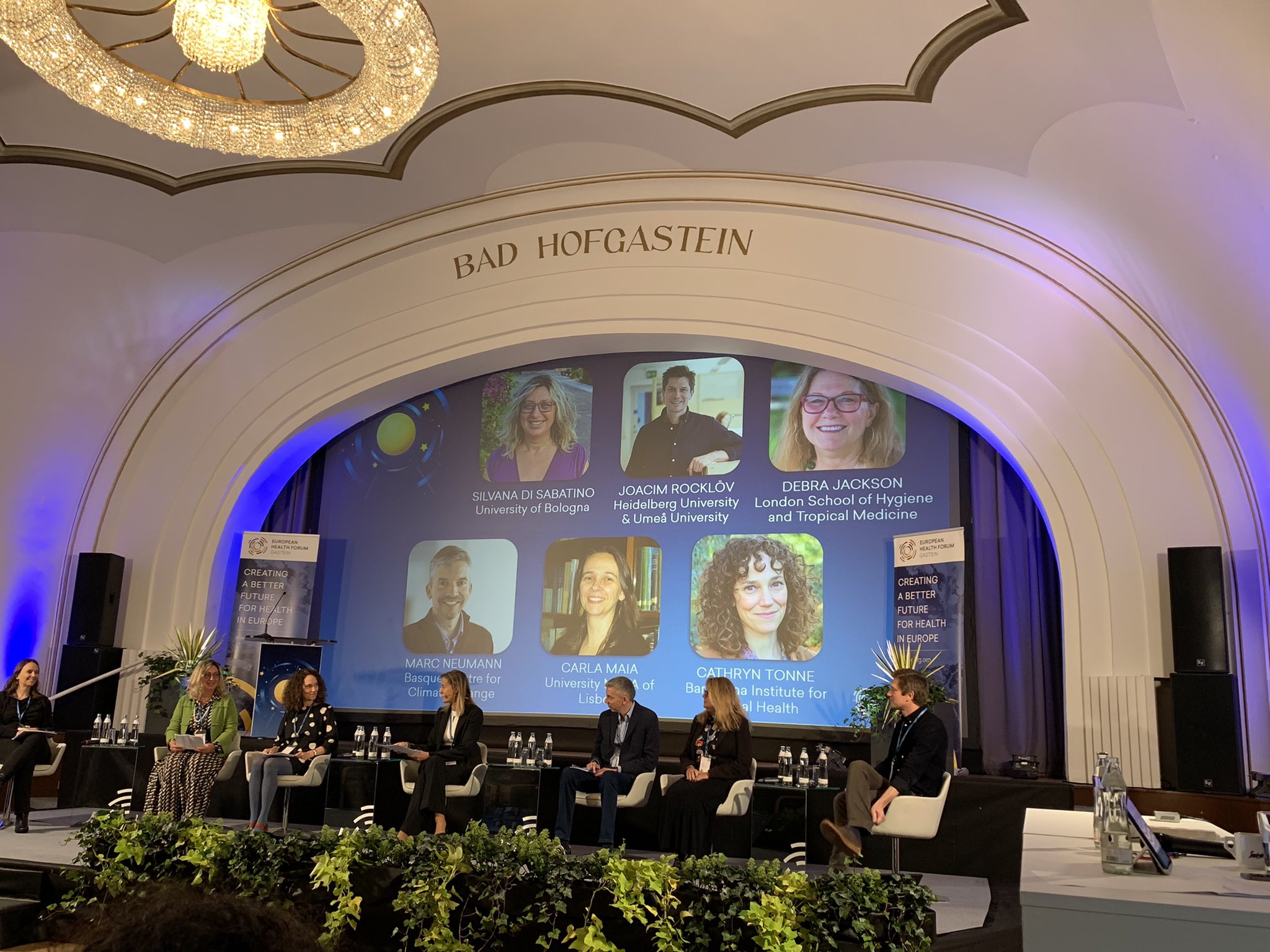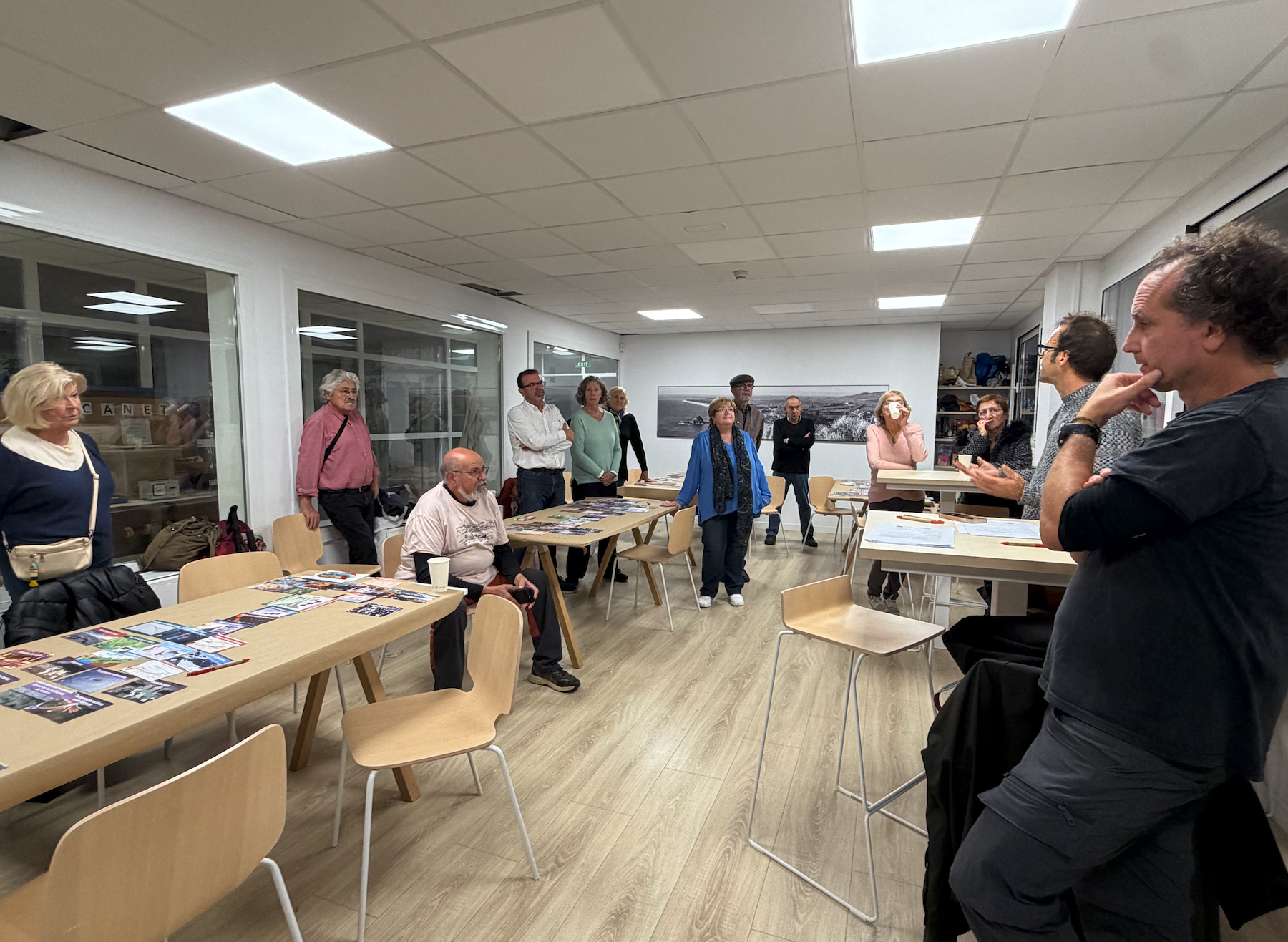The Climate Change and Health Cluster initiated by the European Commission officially launched on 27 September 2022 during the European Health Forum Gastein.
“The launch of the climate change and health cluster earmarks the recognition of human health in the climate change discourse. Not much can be achieved if the focus does not advance a people-centered approach. This equally applies to the processes where we are talking about co-design, co-creation, and co-thinking. However, we need to work on
co-implementation. The cluster will exemplify this. IDAlert as the first lead of the cluster will champion
– multisectoral collaboration, relational coordination, and adaptive communication.
”Raman Preet
Umeå University
The European Health Forum Gastein (EHFG) was founded in 1998 as an independent organisation and is a key platform for health policy exchange, bringing together stakeholders and decision-makers. Over the past decade, the EHFG has been indispensable in the scope of intersectoral European health policy and was the perfect setting to launch the Climate Change and Health Cluster.
Consisting of six ambitious projects, Blue Adapt, CATALYSE, CLIMOS, HIGH Horizons, Trigger and IDAlert, the Climate Change and Health cluster will work together to maximise their collective impact by encouraging synergies and enabling knowledge exchange. In coming together, this cluster represents more than 100 research institutions, over 28 countries, and a budget of €60m.
During the session chaired by Carmen La-Plaza Santos, the six project coordinators, Silvana Di Sabatino (Trigger), Joacim Rocklov (IDAlert), Debra Jackson (HIGH Horizons), Marc Neumann (BlueAdapt), Carla Maia (CLIMOS), and Cathryn Tonne (CATALYSE), discussed their project efforts, the holistic approach of the cluster, and the importance of providing self-empowerment to citizens in making sustainable decisions.
The main aims of the cluster are to optimise the synergies between projects, avoid overlaps, and amplify the impact of individual projects. The cluster will then create a joint scientific strategy that will cover two broad themes:
- Climate change-induced environmental hazards and their impact on health and ecosystems.
- The emergence and transmission of pathogens.
So why the need for a cluster?
Climate, environment, animals, humans, and their social and ecological contexts are interdependent systems. Yet, when tackling their multifaceted impacts on health, these systems are treated separately.
Climate change is having drastic impacts on all aspects of society, with a clear connection to developing health emergencies like covid. The cluster will develop novel indicators related to climate change and health, early warning systems, predictive models and tools for modeling the impact of climate change hazards and cost-benefit analyses. One action will be the development of novel databases and infrastructures to help inform policies and track their impact. Through the cluster, there will be access to a breadth of networks of stakeholders which will be important in amplifying the research and innovation from the individual projects.
Food security (the ability of an individual to access food that is nutritious and sufficient in quantity), water security (the capacity of a population to safeguard sustainable access to adequate acceptable quality water), and heat stress (physiological stress experienced as a result of excessive heat) are today the three most impacting climate change consequences affecting human beings worldwide.
The cluster is a space for dialogue where the individual member projects (CLIMOS, CATALYSE, IDAlert, BlueAdapt, TRIGGER, HighHORIZON) can jointly address the issues of climate change-induced environmental hazards, their impact on health and ecosystems, and the emergence and transmission of pathogens.
With a vision towards an intersectoral European health policy, the cluster stands as a point of contact for researchers and stakeholders to work together. This collaboration helps increase the health sector’s preparedness and response to the ongoing changes in environmental stressors and consequent health threats.
To know more about the individual projects, read here.
If you’d like to hear more about the discussion during the Gastein Forum, watch the recording here.




